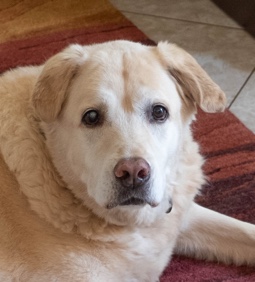 Are you ever too busy to do what you knew you should have done? I remembered an incident that happened several years ago. I drove home after a long and hectic day. As I pulled up to my house, tired and a bit hungry, I remembered that new tub of cookies I had just bought, but not yet opened. The thought of a little comfort food before I started dinner sounded really good. I opened the door. My yellow lab, Barkely, always greets me at the door, but not tonight . . . .That’s strange. Everything looks the same as when I left this morning. Hmmm, what’s that empty plastic container doing on the floor?
Are you ever too busy to do what you knew you should have done? I remembered an incident that happened several years ago. I drove home after a long and hectic day. As I pulled up to my house, tired and a bit hungry, I remembered that new tub of cookies I had just bought, but not yet opened. The thought of a little comfort food before I started dinner sounded really good. I opened the door. My yellow lab, Barkely, always greets me at the door, but not tonight . . . .That’s strange. Everything looks the same as when I left this morning. Hmmm, what’s that empty plastic container doing on the floor?
When I left that morning, I was in a hurry; sure I scanned the counters, looked, no hidden risks there and I didn’t have time anyway to be more careful. I obviously missed the tub of cookies sitting on an otherwise empty counter. Of course Barkley was not rushed and far more observant than I. He probably knew the cookies were there before I left and was just hoping I wouldn’t move them. So Barkley ended up having a pretty good day and I ended up with an empty tub of cookies and just my imagination about how they would have tasted.
Everybody knows that fixing a problem or paying the consequences is almost always far greater and more disruptive than avoiding the problem in the first place. It’s kind of funny how on one hand we usually know what we should do to plan for or reduce risk, and on the other hand, how easy it is to convince ourselves we just don’t have enough time to do something differently. Of course, we somehow find the time to fix the problem we could have avoided. There is no real choice then, but our lives would be so much easier if we just avoided the problem in the first place.
The cumulative effect of all these little detours I would argue is to slow our momentum, rob us of time, increase our stress and reduce our overall well being and wealth. There is definitely a far better way. I have found that creating and following a well thought out plan actually saves me a bunch of time. Stop and assess your current situation to see what risks are sitting on your counter.

